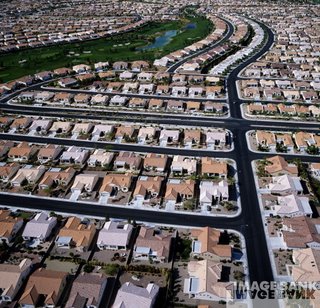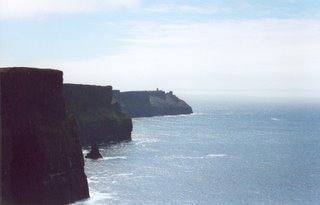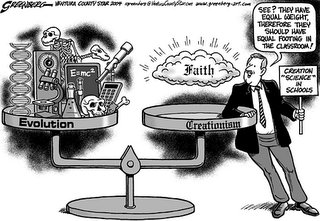From Catholicism to Consumerism

It is well-known that laissez-faire policies and low tax rates are largely responsible for the phenomenon of Ireland’s Celtic Tiger, but the issue of why a nation changes rapidly from one renowned for Catholicism to one whose chief attribute is its people’s ability to consume is one that is not explored so often.
Could it be that people who so readily submitted themselves to Catholicism will embrace consumerism with an even greater readiness?
Supermarkets and shopping centres are our new churches. Queuing in shops and estate agents to be the first to get a new house is our new communion.
Advertising copy and slogans have become our sermons. Our selfish desires have replaced Christian values by which we should try to live.
Brands are our new Gods. Instead of examining our consciences to see if we are living good lives, we focus on ourselves so that brands are more open to hooking us with emotional fixes.
Where religion once gave meaning, now we have brands. Not to buy into them is a sin.
Fear is fundamental to the process. If you were God-fearing, you would supposedly do your best to live by Christian values, for fear of going to hell. Fearing a brand however, is counter-productive. Instead, we must fear the social and personal hell of not owning the same brand of shoes or clothes as our peers.
The fear doesn’t end there. Once you own something, you now have the new fear of losing it, particularly if it is a shiny new IPod or mobile phone, both of which turn young people into unfortunate prey for thieves.
Fear also works in another, more subtle way. There is the fear of losing one’s job in the increasingly outsourced, downsized and offshored corporate world. God forbid you might lose your job. If that happened, you wouldn’t be able to afford the shiny new things that you are afraid might be stolen.
Consume and we will become satisfied. Heaven is satisfaction and self-indulgence. Our status amongst our peers will rise if we buy a particular brand. Hell is not being able to afford to live the same lifestyles as the celebrities that preach to us daily in our Biblical media.
In rejecting one overarching ideology, Ireland has too readily embraced another one.

Google reports that Irish people are the loneliest in Europe, judging by the amount of people who type the word ‘lonely’ into the search engine. Dozens of new houses are poorly served by basic amenities that used to be found in every village. Everywhere you go, previously small, thriving communities are turning into anonymous, soulless suburbia.
The natural landscape gives way to concrete and tarmac. Land and property is still important in the Irish psyche, but instead of living off it, as many once did, we now hurtle through it, from the concrete shell of our mortgage-busting homes to the glass and metal corporate temples of our offices and workplaces.

Once the landscape was a source of inspiration, growth, the cycle of nature and a place of beauty and natural wonder. Now it has become a view to take in - adding to the value of your property - or a site on which to build.
The country has unprecedented rates of sucide – the fifth highest in the EU amongst young people. Stress and mental health problems are also at unprecedented levels, as they buckle under the pressure to fit in, get good grades and degrees, in the vague hope that might be able to afford a house, the average price of which is fast approaching € 500,000.
Behind the facade of Catholicism lurked a darker side: the scandals and abuses, of which we are all now aware.
Ireland is now discovering that behind its glossy image, consumerism also has a darker side.
'It's all about bucks kid, and the rest is just conversation.' - Gordon Gekko in Oliver Stone's film, Wall Street.

